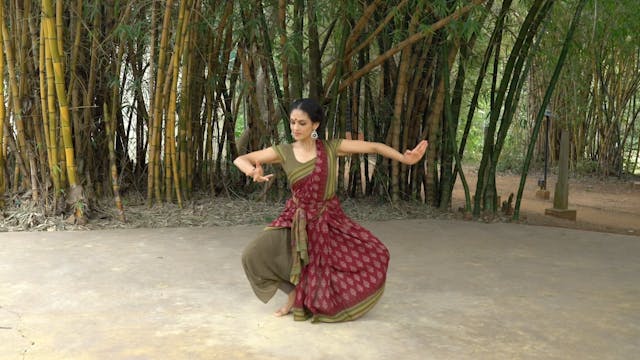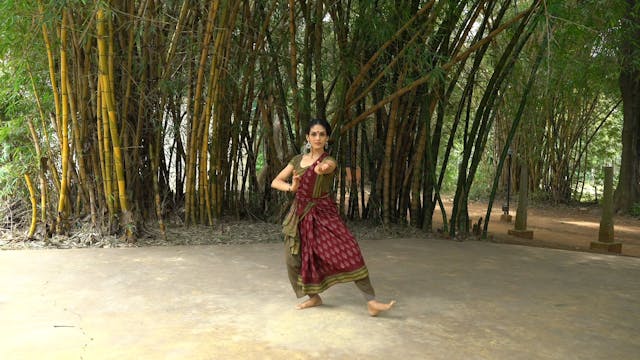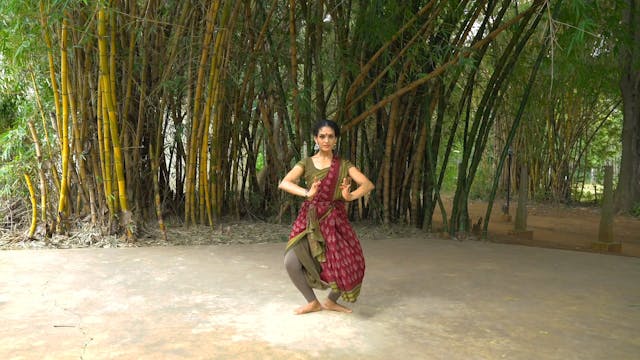Kartharee Adavu 1
Playlist 18: Repertoire Pushpanjali
•
1m 12s
The Kartharee adavu is a movement that begins with a jump, followed by the crossing of the legs. The name could come from the hasta that is used or from the fact that the legs cross.
The bends of the bodies vary in the various types of Kartharee adavu. We usually practice this Adavu to a three count rhythm.
The first Kartharee Adavu, has the body bending toward the pointed toe as the hand crosses over the top in a semi circle. The second and third varieties of Kartharee are very different in the usage of the upper body and arms, so pay specific attention to the way the arms and torso move and coordinate.
Things to keep in mind:
- Make sure the shoulder is down in the arm that crosses the body. Pull it back into the shoulder socket to keep the alignment
- Foot in kunchitam as it crosses.
- Make aproper semi circle with the arm, don't cut corners.
Up Next in Playlist 18: Repertoire Pushpanjali
-
Ta hata Jumtari ta Adavu
The "Ta hata jumtari ta" Adavu, is named after the syllables that are used in the practice of the Adavu. This practise is common amongst most lineages of Bharatanatyam.
The Adavu is a combination of various movements. It has the 'di, di tai" action with the Tattu and Naatu, from the muktaya ada...
-
Teermana Adavu 1
The Theermana or Makutadavu, is placed at the end of a Korwe or Jathi in specific rhythmic patterns, to create an ending.
The leg is either placed outstretched directly in front or at a diagonal of 45 degrees. The foot is flexed and the heel strikes the floor. In the Raadha Kalpa method we begi...
-
Theermana Adavu 2
The Theermana or Makutadavu, is placed at the end of a Korwe or Jathi in specific rhythmic patterns, to create an ending.
The leg is either placed outstretched directly in front or at a diagonal of 45 degrees. The foot is flexed and the heel strikes the floor. In the Raadha Kalpa method we begi...


